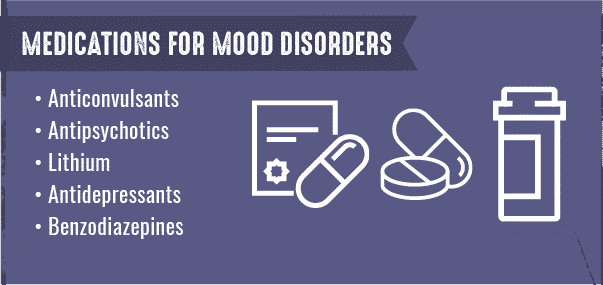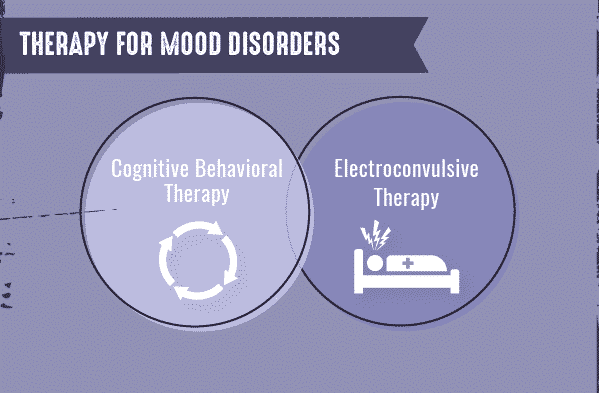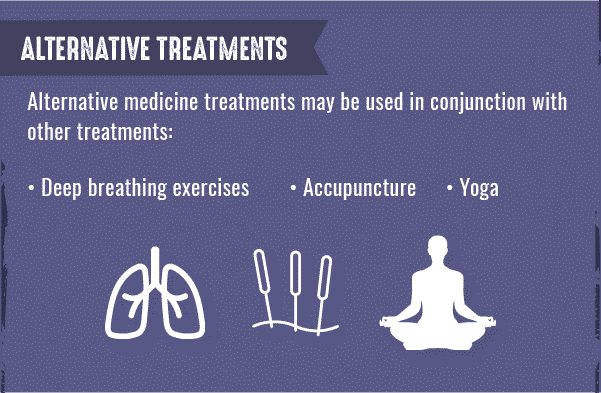Most treatment for mood disorders will consist of medication, therapy, or some combination of the two. There are also many alternative treatments that are gaining in popularity.
While everyone will experience mood fluctuations at some point, for a person with a mood disorder these fluctuations are severe and impair their ability to live their life to the fullest. Mood disorders are the most common mental health conditions. The good news is that mood disorder treatment is available, and it works. Finding the right mood disorder treatment plan can dramatically improve a person’s life.
Effective mood disorder treatment is dependent on many factors. Working closely with a treatment team of dedicated professionals can ensure that the treatment plan is tailored to the individual. Some common factors that may affect the course of treatment and treatment recommendations include:
- Overall physical health and medical history
- Level of severity of the mood disorder
- Presence of co-occurring disorders
- Type of mood disorder
- Personal preferences
Most treatment for mood disorders will consist of medication, therapy, or some combination of the two. There are also many alternative treatments that are gaining in popularity.
There are many mood disorder medications and it can be overwhelming trying to understand the effects of them all. One of the best ways to understand medications used to treat mood disorders is to break them down into types of medications.
Medications for Mood Disorders
The five most common mood disorder medication types are anticonvulsants, antipsychotics, lithium, antidepressants, and benzodiazepines. Anticonvulsants, antipsychotics, and lithium are used to stabilize mood. Antidepressants are used to treat depressive disorders and anxiety disorders. Benzodiazepines are used to treat anxiety disorders.
Anticonvulsants
Anticonvulsant medications include Depakene, Depakote, Lamictal, Stavor, and Saphris. These medications help to stabilize moods and prevent future mood swing episodes. While these medications can prevent depressive episodes, they are most effective in treating manic episodes.
Antipsychotics
Commonly prescribed antipsychotic medications include Abilify, Clozaril, Latuda, Zyprexa, Seroquel, and Risperdal. Antipsychotic medications benefit mood disorders by regulating the parts of the brain that control thinking, mood, and perception. Antipsychotic medications are especially effective for individuals with frequent manic episodes. Antipsychotics may also be helpful for individuals who experience psychotic breaks during bipolar mood episodes.
Lithium
Lithium is the most commonly prescribed medication for bipolar disorder. Lithium is effective at reducing mania, relieving depression, and preventing future bipolar mood episodes. While lithium is extremely effective, it may not be appropriate for all people. When taking lithium frequent blood work is required and dietary changes may be necessary.
Antidepressants
The most common types of antidepressants are selective serotonin reuptake inhibitors (SSRIs), tricyclic antidepressants (TCAs), and monoamine oxidase inhibitors (MAOIs).
- SSRIs are the most commonly prescribed antidepressant medications. SSRIs decrease the reuptake of serotonin which ultimately leaves more serotonin actively working in the brain. Common SSRIs include Zoloft, Prozac, Celexa, Lexapro, and Paxil.
- TCAs are typically only used with SSRIs do not work due to having serious side effects. TCAs include Tofranil and doxepin.
- MAOIs are one of the earliest developed antidepressants. These medications are often used only if all other medications are ineffective due to interactions with both prescription and nonprescription medications and some foods. Common MAOIs include Marplan and Nardil.
If antidepressants are used by a person with bipolar disorder, it is likely that a manic episode will be triggered. For this reason, if antidepressants are prescribed for bipolar disorder, additional mood stabilizing medications are typically prescribed as well.
Benzodiazepines
Benzodiazepines are primarily used to treat anxiety disorders but may also be used to treat depressive disorders with anxiety features. Due to the addictive quality of benzodiazepines these medications are typically only prescribed as a short term solution while other medications have a chance to build in a person’s system. Common benzodiazepines include Valium, Ativan, Xanax, and Klonopin.

Therapy for Mood Disorders
Therapy for mood disorders is almost always recommended either as a standalone treatment or along with medication management. The top psychotherapy for mood disorders is known as cognitive behavioral therapy (CBT). However, for some mood disorder counseling in addition to medication management may not be effective or may not provide complete relief. In these cases, electroconvulsive therapy (ECT) and alternative medicine treatments may be appropriate.
Cognitive Behavioral Therapy (CBT)
Cognitive behavioral therapy (CBT) is based on the belief that thoughts, feelings, and behaviors all interact. According to CBT, if a person changes their thoughts and their behaviors, their feelings are likely to change as well even if the situation remains the same.
Electroconvulsive Therapy (ECT)
Electroconvulsive therapy (ECT) is conducted while a person is under anesthesia. Controlled electrical currents are sent through the brain affecting the brain chemicals. ECT still carries a negative connotation due to the early use of this therapy (under the name electroshock therapy). ECT has been improved greatly since it’s early days and has been shown to treat otherwise treatment-resistant depression. The side effects of ECT include:
- Headache, nausea, or body aches after the procedure
- Feelings of brain fog or confusion after the procedure
- Memory loss, usually confined to the events immediately before or after the treatment or in some cases forgetting things from the weeks leading up to treatment

Alternative Treatments for Mood Disorders
Alternative medicine treatments may be used in conjunction with other treatments. Many people find these treatments to be beneficial as complementary medicine.
Deep Breathing Exercises
Slow, deep breathing, mimics how a body feels when it is relaxed. The body then slows other processes to match the breath. Deep breathing has been shown to reduce anxiety associated with mood disorders. When done regularly, deep breathing may improve mood stability.
Acupuncture
Acupuncture involves pricking the skin with needles to change energy flow within the body. Acupuncture is an ancient Chinese medicine practice but has been clinically shown to benefit many ailments. Acupuncture has been shown to reduce symptoms of depression and other mood disorders. However, acupuncture has also been shown to be ineffective by other studies indicating that the effectiveness may in part be related to a person’s belief in the treatment.
Yoga
Yoga’s impact on mood disorders has been studied and overall yoga appears to have a positive impact on depression and other mood disorders. Even treatment-resistant depression has been shown to benefit from the long-term implementation of yoga.

Treating Mood Disorders and Co-Occurring Substance Abuse
As many as half of people with a substance use disorder have a co-occurring mood disorder. If you or a loved one struggles with a mood disorder, like depression, and is using alcohol or other drugs help is available at professional centers across the country. The Recovery Village offers comprehensive treatment for substance use and co-occurring disorders. For more information about our care options, reach out to a representative today.


WebMD. “Relaxation Exercises for Depression Recovery.” (n.d.) Accessed February 27, 2019.
National Alliance on Mental Illness. (n.d.). “ECT, TMS And Other Brain Stimulation Therapies.” (n.d.) Accessed February 27, 2019.
National Association of Cognitive-Behavioral Therapists.“What is Cognitive-Behavioral Therapy (CBT)?” May 16, 2016. Accessed February 27, 2019.
Qureshi, N. A., & Al-Bedah, A. M. (2013). Mood disorders and complementary and alternative medicine: a literature review. Neuropsychiatric disease and treatment, 9, 639-58.
Serafim, S. D., Ponte, F. D., Lima, F. M., Martins, D. S., Rosa, A. R., & Kunz, M. (2018). Effects of deep breathing in patients with bipolar disorder. Perspectives in Psychiatric Care. doi:10.1111/ppc.12325
The Recovery Village aims to improve the quality of life for people struggling with substance use or mental health disorder with fact-based content about the nature of behavioral health conditions, treatment options and their related outcomes. We publish material that is researched, cited, edited and reviewed by licensed medical professionals. The information we provide is not intended to be a substitute for professional medical advice, diagnosis or treatment. It should not be used in place of the advice of your physician or other qualified healthcare providers.
